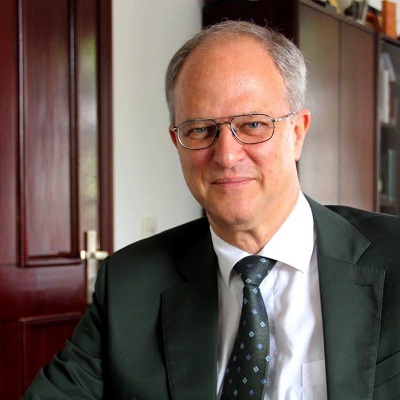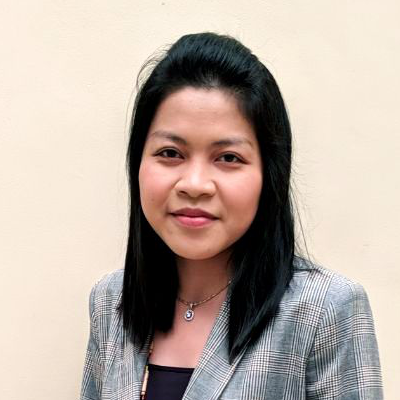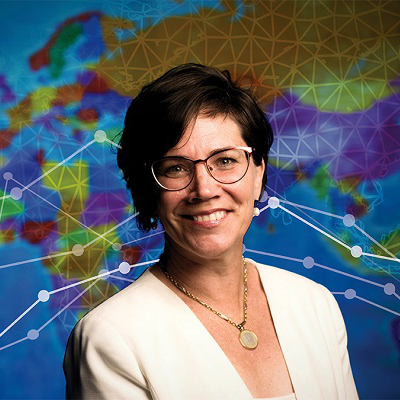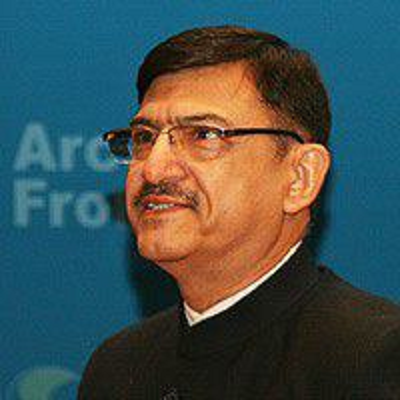Video-Einführung (Englisch)
Sehen Sie sich unsere Video-Einführung zu den Themen der aktuellen Ausgabe auf Youtube an.
Youtube, KAS Kambodscha
Noch ein "Great Game"?
Ist der Indo-Pazifik nur ein neues Schlachtfeld für die Großmächte? Wie wird die potenzielle neue Weltordnung aussehen, die dort entschieden wird? Werden wir Zeugen vom Ende des Multilateralismus und der Rückkehr zu einem bipolaren System - dieses Mal mit China und den USA?
Ursprünglich war das "Great Game" der Name, den Kommentatoren der Rivalität zwischen Großbritannien und dem Russischen Reich im 19. Jahrhundert gaben, als beide Reiche um Einfluss in Zentralasien und im Pazifik kämpften. Jahrhundert, als beide Imperien um Einfluss in Zentralasien und im Pazifik kämpften. In den letzten Jahren ist der Indo-Pazifik erneut in den Fokus internationaler Akteure gerückt.
Diese und viele weitere Fragen werden in der neuen Ausgabe des Diplomatic Briefing diskutiert, einer halbjährlich erscheinenden Zeitschrift zu Internationalen Beziehungen, die von der KAS Kambodscha in Zusammenarbeit mit dem Cambodian Institute for Cooperation and Peace (CICP) herausgegeben wird. Diese Publikation bringt Autoren aus der ganzen Welt zusammen, um die indopazifische Region aus ihrem jeweiligen Blickwinkel zu betrachten und das Verhalten bestimmter Länder oder Akteure zu analysieren.
Da China seine Macht über die Neue Seidenstraße und die String of Pearls ausbaut und dabei mit Indien und den Quad-Ländern zunehmend in Konfrontation gerät, werfen wir einen Blick darauf, wie der rote Riese die Region sieht und wie wiederum Australien, die USA, Indien und Japan seinen wachsenden Einfluss dort wahrnehmen.
Wir werfen auch einen Blick auf Europas eher unrühmliche Vergangenheit im Indopazifik, aber ebenfalls auf seine Zukunft dort. Wir werden uns anschauen, was Deutschland, Frankreich und die Europäische Union in der Region erreichen wollen.
Von besonderer Bedeutung wird auch sein, was der Indo-Pazifik für ASEAN generell und speziell für Kambodscha bedeutet. Wird das Konzept der ASEAN-Zentralität durch den Indo-Pazifik gefährdet oder wird sie dadurch sogar eher aufgewertet?
Autoren und Inhalt

"The German Government does not see containment or decoupling as a viable option. And China is most relevant to the German economy. But - and this is a hard task - China must be convinced that it is in its very own interest to pursue its legitimate goals in a multilateral framework, including practical contributions to further developing the rule basedorder as acceptable to other parties."
Der erste Artikel in der neuesten Ausgabe des Diplomatic Briefings ist ein aufschlussreiches Interview mit Christian Berger, dem deutschen Botschafter in Kambodscha. In diesem Interview erklärt Berger den Kontext der neuen deutschen "Politischen Leitlinien für den Indo-Pazifik“.

"For Japan, the vision of FOIP consists of three major pillars. The first of these is the promotion of the undamental principles of theinternational community, sch as the rule of law, freedom of navigation and free trade. Second is the pursuit of economic prosperity through the enhancement of connectivity. This would include quality infrastructure development that is consistent with international standards. Third is the commitment to peace and stability which would be achieved through initiatives such as capacity building for maritime law enforcement, disaster risk reduction and nuclear non-proliferation."
In diesem Artikel, bezieht Mikami Masahiro, der japanische Botschafter in Kambodscha, Stellung zu den Beziehungen zwischen Kambodscha, Japan und dem Konzept des freien und offenen Indo-Pazifiks.

"Cambodia has associated itself with the Indo-Pacific under only two circumstances. First, Prime Minister Hun Sen was the first ASEAN leader to express full support for Japan’s FOIP during his official visit to Tokyo in 2017. Second, Cambodia has endorsed the AOIP, especially the principles pertaining to ASEAN centrality, openness, inclusivity, and respect for sovereignty. This clearly explains the Kingdom’s cautious attitude toward the concept and the importance it attaches to Japan and ASEAN."
Dr. Cheunboran Chanborey bietet eine weitere Analyse der kambodschanischen Perspektive auf das Konzept des freien und offenen Indopazifiks. Erfahren Sie, wie das Königreich seine Rolle in der Region definiert.

"Despite positive progress, there are persisting challenges ahead. ASEAN members need to embrace the proactive engagement through “pragmatic cooperation”; develop a clear and strategic direction to efficiently move the AOIP forward; and foresee and prepare for the dynamic geostrategic landscape."
Im vierten Artikel nimmt die stellvertretende Direktorin des CICP und leitende Redakteurin des Diplomatic Briefing, Pich Charadine, die ASEAN-Perspektive ein. Wie könnte ASEANs Vision des Indo-Pazifiks aussehen?

"Taking these points collectively, the use of the term containment as a concept describing American policy towards China is invalid. Yet perhaps this also raises a more important point. The Cold War ended thirty years ago, and the world has since changed enormously. In this author’s view, it is time to develop a more precise, timely, and relevant vocabulary in which to discuss contemporary geopolitics in general and the Indo-Pacific Strategy in particular."
Der Indo-Pazifik gewinnt für die Vereinigten Staaten von Amerika rapide an Bedeutung. Dr. Bradley J. Murg geht näher auf die Geschichte der Eindämmungspolitik und Indo-Pazifik-Strategie der USA ein.

"The Chinese government and academia are aware of the detriments and risks of FOIP not only to BRI but also to regional stability. Despite all those negative factors brought about by FOIP, China will continue its cooperative diplomacy and seek cooperation with all parties, including the US and its Quad allies, to construct a sustainable, inclusive, and fair new order."
Der freie und offene Indo-Pazifik spielt eine bedeutende Rolle für China. In seinem Artikel erklärt Zhang Zijie den chinesischen Blickwinkel auf westliche Einflüsse in der Region.

"The reality is that China will continue to be an important regional actor and critical trading partner in Australia’s future. How Australia rebuilds and sustains engagement with China for the long term will be the marker of its diplomatic tenacity. There is no straightforward approach, but more constructive forms of engagement—within and outside official spheres—are to be encouraged."
Australien ist ein zentraler Akteur im indo-pazifischen Raum. Professor Caitlin Byrne schildert Australiens diplomatische Bemühungen in einer Zeit des Wettbewerbs.

"The concept of the Indo-Pacific region is in the midst of being strongly contested and can potentially create blocks led by China, supported by Russia, and the US. These political blocks will determine the geopolitical dynamics of the Indo-Pacific region and its pathways that will shape the future of Asian security. ASEAN member states will be under enormous pressure to make choices that can potentially add to the fast-evolving insecurity in the Indo-Pacific region."
Indien ist ein namensgebendes Element des Indo-Pazifiks. Doktor Vijay Sakuja gibt in seinem Artikel wichtige Einblicke in Indiens Sicht auf die sich entwickelnde Machtdynamik.

"The upcoming Indo-Pacific strategy marks a new era for the EU in its approach toward Asia, but it has yet to be put into action with deeds. First, the strategy diversifies EU relations with Asia. Second, it builds on partnerships and multilateral agreements while promoting its values of democracy and human rights, and offering new assertiveness when it comes to defending the EU’s (economic) interests."
Die Indo-Pazifik-Leitlinien der deutschen Bundesregierung unterstreichen das verstärkte Interesse Europas an der Region. Erfahren Sie im Artikel von Isabel Weininger, der Leiterin unseres Auslandsbüros in Kambodscha, wie Europa selbst seine Rolle im Indo-Pazifik wahrnimmt.

"France’s strategy for an inclusive Indo-Pacific region is to act as an inclusive and stabilizing mediating power."
Von den Staaten Europas ist Frankreich mitunter bereits am längsten im Indo-Pazifik aktiv. Erfahren Sie im Artikel von Laurent Triponey, warum die Region für die Französische Republik eine Priorität darstellt.

"The imperial order in the end was neither inevitable nor sustainable. The Indo-Pacific is a region of breathtaking wealth and diversity. The enormous potential of this diversity is best realized when all actors involved in the region retains their unique voice and regional order is based on cooperation, and shared values and principles."
Der Artikel von Maurizio Paciello über die Kolonialvergangenheit des Indo-Pazifiks und seine politische und soziale Entwicklung schließt das Diplomatic Briefing ab.




Bitte melden Sie sich an, um kommentieren zu können.